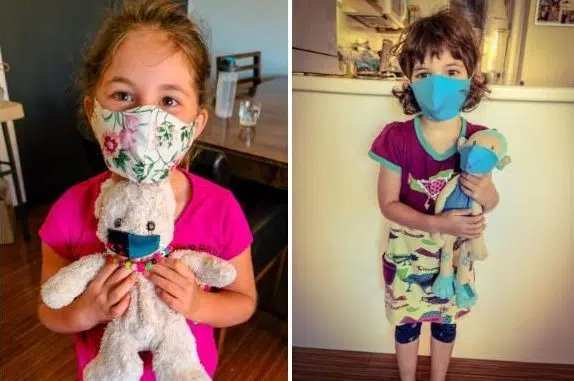Martin Gaal has “wary optimism” after Pfizer announced Monday that children between the ages of five and 11 may soon be eligible to receive a COVID-19 vaccine.
Gaal’s two daughters — seven-year-old Sasha and five-year-old Eilise — would fall into that age category.
“We’re very much looking forward to the time when both of our daughters can get vaccinated,” said Gaal, who is a lecturer in political studies and international studies at the University of Saskatchewan.
According to the Ministry of Health, a recent study of 1,643 cases in the province found 98 per cent of school-aged COVID cases live in unvaccinated or partly immunized households. Currently, everyone 12 and over as of Dec. 31 can get a COVID vaccine in Saskatchewan.
As of Tuesday, there were four children under the age of 11 with COVID in Saskatchewan hospitals. There weren’t any in intensive care.
Gaal said there have already been two or three reports of COVID cases at his daughters’ school and he’s concerned about the effects the virus could have if either of his daughters caught it.
“We don’t know the long-term impacts if they do catch COVID. They’re likely to be OK — they have no underlying health conditions and they’re young and healthy — but we don’t know what the long-term impact could be,” he explained.
That potential for long-term complications makes him excited to hear child vaccines could be cleared sooner than expected, though he said the uncertainty now lies in when the vaccine will actually be made available to children.
“We’re very much looking forward to the opportunity,” he said.
Gaal said his daughters have been asking about when they can receive their COVID shots, but said the actual needle experience might not be too enjoyable.
“They’re getting better,” he said. “There’s one nurse at the university that they both like, so hopefully we’ll be able to get their shot there.”
A bit of bribery or coaxing, he added, might be needed to encourage his daughters on the day of their shots, but said they both understand the importance of getting the vaccine.
Gaal thinks it’s important for parents to have open conversations about concerning topics like COVID-19 with their kids, not just behind closed doors. Restricted conversations, he said, can sometimes amplify worry for children, which they feel at home, school and at every cancelled birthday party.
For that reason, COVID is a topic his family has covered a lot, Gall said.
Since the beginning of the pandemic, his daughters have been encouraged to draw pictures of what they thought COVID-19 looked like and discuss their thoughts on the virus. This led to many conversations about why the illness was dangerous and the importance of protecting each other by wearing masks, creating bubbles and social distancing.
“They’re actually way better at it than I am,” Gaal said.
For one, Sasha and Eilise are very passionate about carrying “hannisizer” — their term for “hand sanitizer” — with them everywhere they go.
They also do some “mask policing” at times, their dad said.
“If we’re out and about and they see someone without a mask, they’ll go, ‘Daddy, that person’s not wearing their mask,’” he said with a chuckle.







